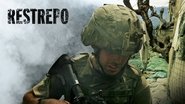ironhorse_iv
Though I walk through the Valley of the Shadow of Death, I fear no evil. Welcome to the suck! Directed by American journalist Sebastian Junger, this documentary tells the story of American troops stationed in the Korengal Valley in northeastern Afghanistan during the Afghan War of the early 21th century. At the time of this film was made, Korengal Valley was one of the most deadly active combat zone in U.S military history. Filmed during the 2007/2008 years of the War in Afghanistan. The film takes a fly-on-the-wall approach, by showing how the men of Battle Company 2nd of the 503rd Infantry Regiment 173rd Airborne Brigade Combat Team run the area, as they try to negotiations with the local people, construction of an advanced outpost, as well as the challenges and intermittent firefights they face. Interspersed between stock footage of action, are interviews with the soldiers themselves as they look back on what they did right and wrong, and how it affected them. The emotional distress that the soldiers went, through is very haunting. It's really hard to watch them, talk about certain mission, such as Operation Rock Avalanche, due to its tragic consequences. The movie use close up, during the interviews, so well, that you can see the expressions on their faces, not realizing or understanding how they're going to live with this experience for the rest of their lives. Nothing is "candy coated". Just pure, raw energy, bravery, and emotion. While, the combat footage doesn't show, any of the enemy. You can really, tell, how, their unseen presence, affect the soldiers, there. They hardly any down time, in the beginning. I'm awe-inspired by their courage under fire, even if, most of the time, they shooting bullets at ghosts. However, there were some funny parts to lighten up the film toward the middle and the end. The exchange between the elders of the village and the soldiers, about a shot cow was somewhat humorous to witness. Why in the living hell, would the captain think that the locals would take a small bag of rice and beans, over steak, would work!? It's really unbelievable funny, how naïve, the captain is. However, the scene where the troops are celebrating on being alive, dancing to Samantha Fox's song, "Touch me" was fun to watch. Still, the movie's shaking cam is a bit of a headache to watch. You can barely figure out, what's going on and to whom, half the time. There are just way too many men for this documentary to cover. I really didn't to know, most of them, that well. It doesn't help that the movie footage is full of military jargon and acronyms. There is a lack of subtlety within the language. It doesn't help, that some of the documentary footage, makes, the morals of the soldiers, somewhat look questionable. Lots of over-violent aggressive masculine being shown here, rather than winning the hearts & minds heroics. It's also weird to see, that most of them, have little to no idea, why they're fighting here. The movie doesn't once, address their views of the war. They never address, if their actions, are doing good or not. Other things, that the film fails to talk about, is the legal basis of their occupation like actions. In truth, the army has little to no legal right to order the Afghan citizens around. It's the job of the local police. The movie shows great examples of the loss of communications, between the local tribes and those of the U.S military. You really do, see, the villagers' perspective, in safety when it comes to protecting their families and clan members. From their point of view, the presence of the U.S. military hasn't made their lives more secure. Quite the opposite; their presence endangers them, and no amount of money from the military can change, their opinion on it. It a sign of really bad leadership, when the only way, to solve a problem is to toss money at it. You really do see the lack of cultural sensitivity and empathy within the soldiers. Never once, did the documentary, show the soldiers trying to understand, Afghan culture and why they live, the way, they do. It also hurts to see, the soldiers rarely showing empathy when it comes to accidentally innocent civilians. You would think, they would be more apologetic. Things like that, could be, our undoing there, if we don't address them. In the end, U.S. military did had pulls out of the Korengal Valley, because fail to win the heart & minds of the locals. Still, it's not too late for, building relationship with the whole country. Overall: While, some critics see this film as an American jingoism propaganda. Others see it as an objective movie about the war in Afghanistan. In my opinion, it's both, anti-war and patriotic. It's a gritty depiction of the (sur) realities of modern warfare. A must-watch.

